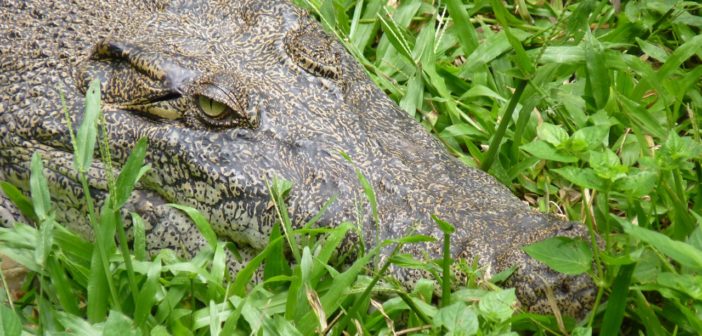Each time a crocodile appears, people go into a frenzy. Each time a crocodile attacks a person, the media paints a picture of fearsome aggressive beasts that reign terror on unsuspecting victims.
That they are dangerous is clear, but like many things in nature, crocodiles do not set out to hunt humans. Crocodiles are opportunistic predators and will grab a human or any animal that moves, but this is just the animal acting according to nature — and these days, it is the crocodiles who pay the ultimate price for doing so.
Not all species attack humans, however. Many are wary of people and may only bite if they are disturbed or taken by surprise. Crocodile attacks can be prevented if people are made aware of the specific risks that face them. Most often, crocodiles are killed in an attempt to find remains of missing children or adults in their stomachs.
At the same time, crocodiles that attack humans are also in need of protection. They are at risk precisely because they are dangerous.
Crocodiles and humans may never coexist in peace, but knowing and understanding how to avoid becoming a croc’s dinner is an important first step. The problem can be reduced or possibly even eliminated by instilling cautious, commonsense attitudes in people whose activities place them in potential contact with the crocs.
It is very, very difficult to protect people who choose to swim in crocodile infested waters, adopting an “Oh, it will never happen to me” attitude. Removing a crocodile from its domain does not make an area completely safe, merely safer than it was, and there is no way of knowing when another crocodile will move in to take its place.
Crocodiles are one of the few remaining links to the prehistoric past. As predator and prey, they play a valuable role in the health of many aquatic environments. They are found in rivers, lakes and also near coastal areas and in waterways such as rivers or swamps. Being an important part of the food chain, crocodiles help to keep our wetland environments healthy and stable. Protecting them is thus vitally important.
The biggest threat to crocodile survival is habitat destruction. Increasingly humans are crowding in on crocodile territory with developments in swamps, mangroves, and rivers, displacing them from their homes. Their swamps have been drained to create more cultivated land, while the rivers they live in have been damaged by pollution, overfishing, and development. It remains to be seen how many can endure in a world where they have been squeezed out of their former ranges by agricultural and urban growth.
The catching of a massive 14 foot crocodile by Malaysia’s Civil Defense and the Fire and Rescue department staff in Penang again brings to mind the death of Penang’s longest reticulated python. Are these men trained in methods of restraint and handling of a massive crocodile without causing further stress with their capture techniques? Why was the Penang Wildlife department not called in for assistance?
There are Codes of Practice on taking, handling and transporting crocodiles as laid out by the Queensland government’s Department of Environment and Heritage Protection. They state that the limbs should be restrained temporarily to prevent struggling and tied loosely so as not to restrict blood circulation. When the limbs are restrained longer than two hours this procedure invariably causes edema in the feet resulting in severe tissue damage or loss of limbs. Crocodiles dissipate heat by evaporation from the mucous membrane of the mouth. A struggling croc with its mouth lashed shut may rapidly overheat. It should be monitored and cooled if necessary. Are Malaysia’s Civil Defense and Fire and Rescue teams trained to know all these details?
Sahabat Alam Malaysia (SAM) hopes that these reptiles, which have survived from the age of the dinosaurs, are able to survive the modern predator—man.
Featured image: crocodile at Semenggoh Wildlife Centre outside Kuching, Sarawak, Malaysia, removed from a conflict situation with villagers. Courtesy Wolf Gordon Clifton – Animal People, Inc.





